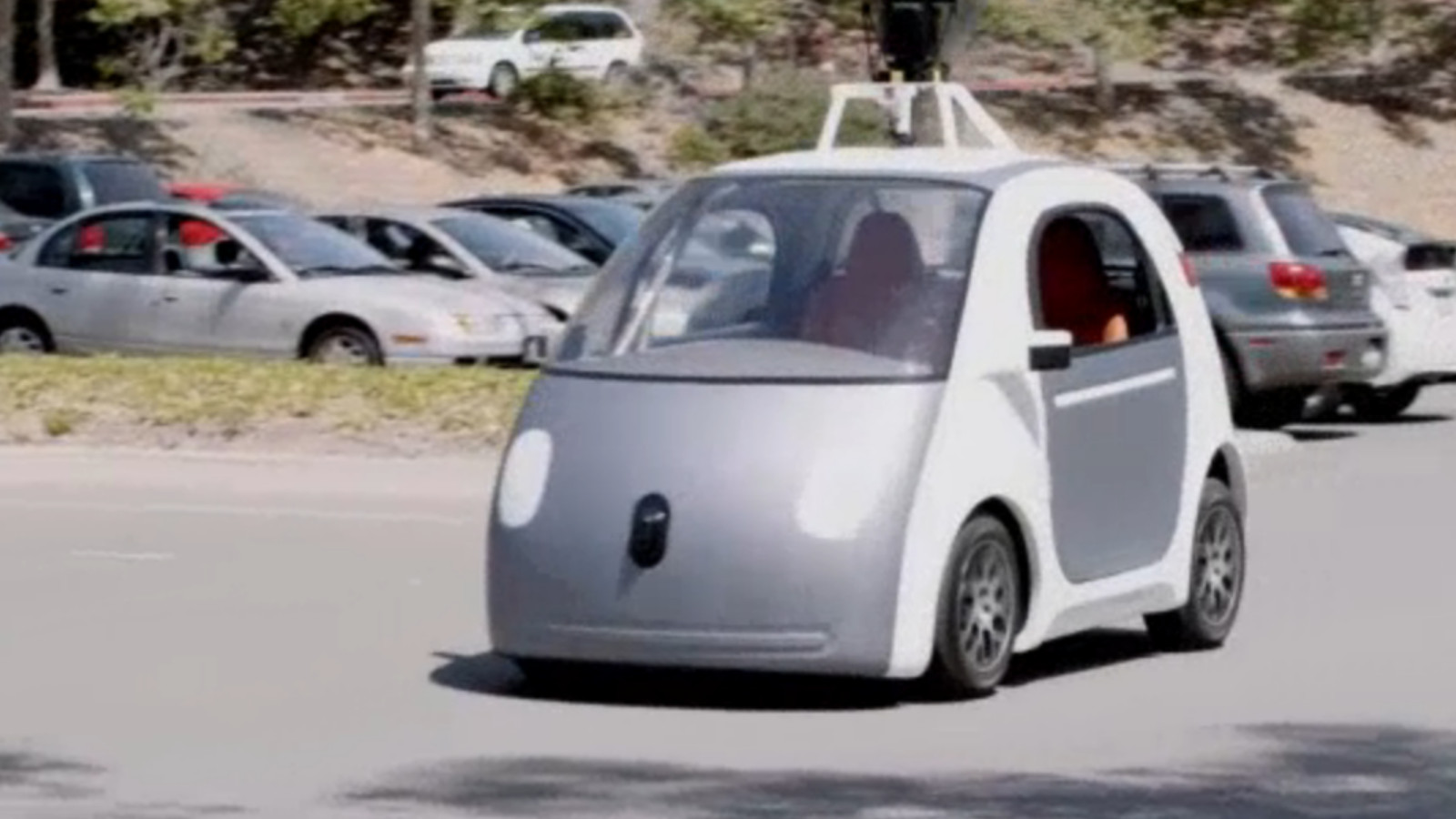Will Google's self-driving car be the end of the pedestrian?
The smiling face of the driverless future could transform transport forever

Google has some new self-driving cars to show off, and unlike previous versions, these ones can't be taken over by humans: there's no steering wheel, no pedals and no enormous red panic button should things go wrong.
The vehicles have been deliberately designed with smiley faces to make the potentially scary technology seem more friendly, although cynics might point out that that's the same kind of thinking behind Skynet's decision to make its Terminators look human.
Skynet was fictional, of course, and unlike Terminators, self-driving cars could do enormous good for humanity: their drivers are never sleepy, stressed or hungover and probably won't plough into a bus queue while distracted by a particularly amusing dog.
They're fantastic for people with disabilities, they could make road use much more efficient, they could make journeys much safer, and if they're powered by renewables and we ban normal cars from cities, they could eliminate most urban pollution and congestion.
But they might eliminate pedestrians too.
Bye bye buses
I don't mean eliminating pedestrians in a fatal sense: Google says safety is a priority, and the current cars are so light, so slow and so packed with foam that if one of them smacked into you on a zebra crossing it'd probably bounce off. I'm not sure I'd like to be a passenger in one if some goon in a pickup or a harassed HGV driver wasn't paying attention, mind you: in those circumstances Google's self-driving car could quickly become a self-driving hearse.
It isn't hard to imagine self-driving cars resembling the transports from Wall-E, though. Why walk anywhere when a silent, self-driving car will pick you up and take you to the door of your destination? Why invest in traditional public transport such as buses, trains and trams if there are sufficient self-drivers around and the few people who don't use them don't vote anyway?
Get daily insight, inspiration and deals in your inbox
Sign up for breaking news, reviews, opinion, top tech deals, and more.
It's fascinating and potentially frightening stuff, but I do wonder if the current hype over self-driving cars is our generation's version of the hype over flying cars. The tech is largely there, but the problems aren't about the sensors or the software: they're about the wider environment in which the vehicles have to operate - and that environment includes faulty human drivers.
Spend ten seconds on a typical UK motorway and your faith in human intelligence at the wheel quickly palls. Similarly if you watch the average SUV driver's complete disregard for red lights, speed limits and other road users the only way you'll get in a self-driving vehicle is if it's a self-driving tank.
I suspect that for some time to come, self-driving cars will be the new concept cars: exciting ideas that everybody goes "ooh!" at, knowing full well that what ends up on the roads will bear very little relation to the vision. Google's self-driving cars are really clever, but they'll only be clever enough in an extensively digitised place with lovely weather, good roads and very relaxed regulators.
Writer, broadcaster, musician and kitchen gadget obsessive Carrie Marshall has been writing about tech since 1998, contributing sage advice and odd opinions to all kinds of magazines and websites as well as writing more than a dozen books. Her memoir, Carrie Kills A Man, is on sale now and her next book, about pop music, is out in 2025. She is the singer in Glaswegian rock band Unquiet Mind.
